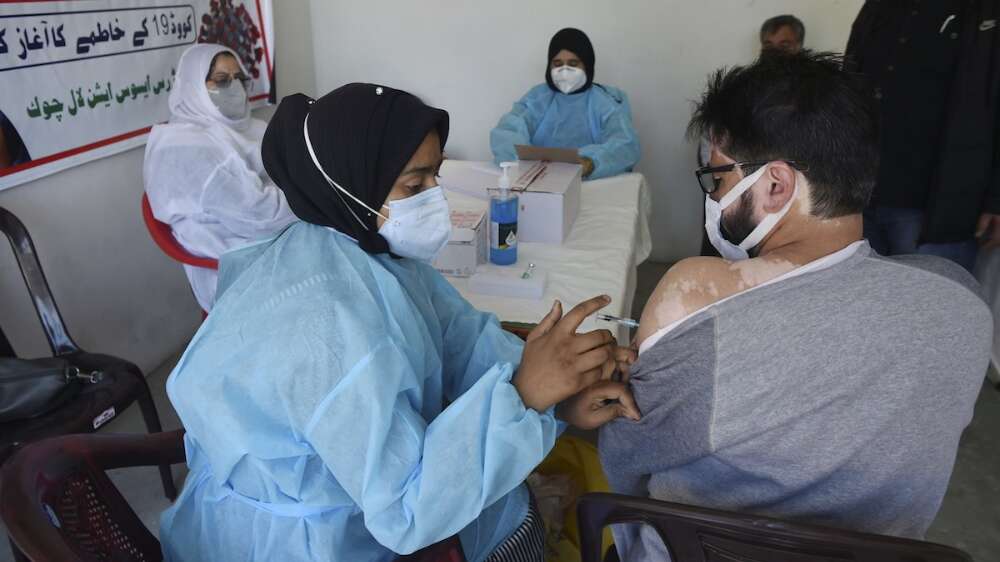Life-saving concession

As India continues its grim march through its latest wave of Covid infections, there is some good news to inject a little hope into the effort. After much deliberation, the US has made the historic decision to back the temporary waiver of vaccine intellectual property rights. Proposed by India and South Africa at the WTO at the end of last year, the waiver was meant to solve vaccine inequity worldwide by drastically expanding production. The idea was, once the patents protecting the manufacture of certain vaccines is temporarily waived, any company with the technology and know-how can produce a generic version of any of the available Covid vaccines. While the proposal by India and South Africa had found widespread approval amongst poorer nations, rich countries like the US, UK and the EU nations stood against such a waiver. Their reason? IP waivers would apparently hurt innovation and conversely make it harder for newer vaccines and booster shots to be made. The idea here is that any vaccine maker that spends billions of dollars in research and development is not likely to appreciate having its protected formula and such distributed free of charge, even for a public health crisis. This, in turn, would deter vaccine companies from investing in the research and production of certain vaccines, stifling necessary innovation. There are two problems with this reason. First, as is a matter of public record, a significant portion of funding for all the available Covid vaccines worldwide comes from public money. Second, as vaccine makers would themselves admit, they are still making handsome profits even if they are having to subsidise their doses in many places. More importantly, such a reason fails to recognise that the reason why a temporary IPO waiver is being considered is that the traditional capitalist method of doing things has failed. If somehow vaccine makers were able to fairly and cheaply provide vaccines to countries across the world without discriminating on the basis of available resources, then debate over this waver would not have come up. It is because vaccine makers have been unable to meet demands that such a drastic measure becomes necessary. Of course, the vaccine makers have insisted that the supply bottleneck does in intellectual property rights but rather in current manufacturing limitations. Vaccine industry heads have warned that an IPO waiver may seem to be a tempting short term answer but it will have significant consequences. And they aren't referring to the standard line on waivers being 'anti-competition'. What they are insisting upon is that simply having the vaccine formula is not enough to safely and reliably make the vaccine. Even if such vaccines were produced who guarantees they are safe? Who is held responsible if such generic vaccines are not safe? It is important to mention that 100s of Nobel laureates, former world leaders, etc., have encouraged vaccine IP waivers as a way of stepping up the fight against Covid-19. The production of generic versions of expensive drugs is something that has been part of India's strengths for quite some time. If Indian manufacturers could gain wider access to tightly controlled vaccine formulations, then India could leverage its medical production capabilities to produce a truly extraordinary amount of vaccine doses. But it would be foolish to see a vaccine waiver as a kind of wonder cure to the vaccine problem. While assertions of an IP waiver hurting innovation are questionable, the concerns over what could happen if production was opened up are not. If India does open up generic vaccine production, then it would be vital for the government to remain involved. Obviously, this would be for maintaining the safety standards and quality parameters of the generic vaccines. The government would also have to establish a chain of liability that clarifies who would be to blame if a generic vaccine has particularly serious side effects or is otherwise found wanting. Finally, the government would also need to involved in promoting the efficacy and safety of these generic vaccines. Picture this, people are already terrified and sceptical of vaccines being developed by massive multi-billion-dollar MNCs. How would such people react when they find out their vaccine is made locally by a company they have never even heard about? It is also important to note that the US agreeing to an IP waiver does not mean that India will suddenly start producing a massive amount of vaccines from the next month onwards. Most observers say that the US saying yes initiates a process of negotiation and debate amongst the rich western countries who opposed a waiver. While the US approval carries significant weight, it does not guarantee that the other detractors will fall in line. And even if they do, there are months of negotiations to go through before the waivers are lifted. And even then, it is not likely that the process would go smoothly from the get-go. But it's a start. If we move past the urge to monopolise in a time of public crisis, India could fulfil its significant potential as a vaccine maker to bring an earlier end to this pandemic.



